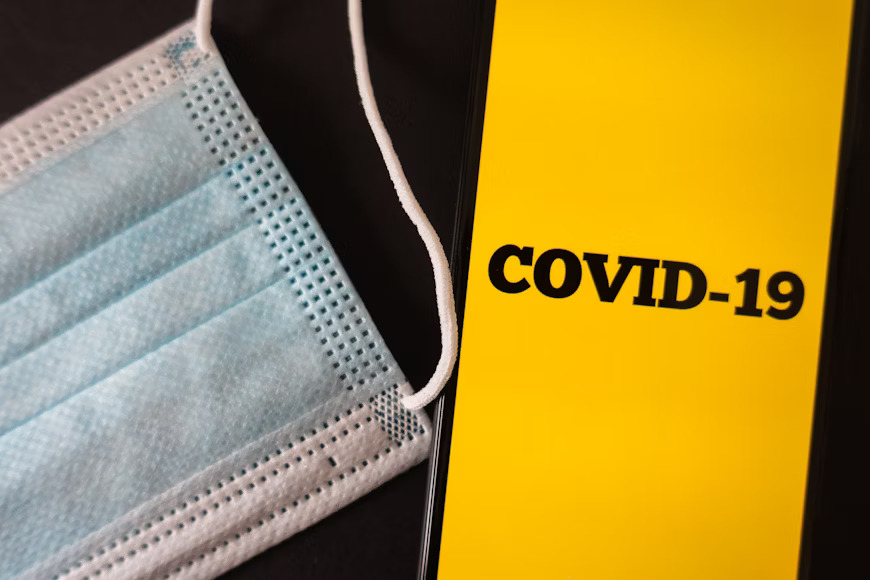Doctors recommend home-based recovery for mild cases of Covid-19
Covid-19 has affected millions of people across the world. As hospitals get busy with the more serious cases, doctors recommend home-based recovery for Covid-19 patients with mild or no symptoms.
Here’s what you need to know about recovering from Covid-19 at home.
Who can stay at home to recover from Covid-19?
The recovery plan for Covid-19 depends on how serious your infection is. Patients who test positive for Covid-19 are classified as asymptomatic, mild, moderate, and severe cases, based on the symptoms they show.
Asymptomatic Covid-19
- Show no visible symptoms despite testing positive
- Have SpO2 concentration higher than 93% in room air
Mild Covid-19
- Show infection in the nose, throat, and airways.
- May have fever up to or higher than 100° F and experience tiredness
- Have SpO2 concentration higher than 93% in room air
Patients with asymptomatic or mild infections are advised to stay at home for recovery.
However, patients who are over the age of 60 or suffer from chronic diseases (diabetes, hypertension, lung and heart disease, etc.) fall in the high-risk category. They should consult with a doctor for the best recovery route.
Moderate & Severe cases of Covid-19
- Severe infection in the nose, throat, and airways
- Fever up to or higher than 100° F
- Chest pain, shortness of breath, and other symptoms that require medical attention.
- SpO2 concentration drops below 93% in room air
Patients who fall under moderate and severe cases require critical medical care. They are treated in hospitals under the supervision of doctors.
How to recover from Covid at home?
If you have tested positive for Covid-19 or have come in contact with someone infected, your doctor will advise you to self-quarantine at home. Follow these steps to recover safely from Covid-19 at home.
Self-isolation
- The first step is to maintain a safe distance from other members of your family. This is important to stop the infection from spreading. Keep a distance of at least 6 feet from others.
- Wear a mask at all times. An N-95 mask should be used while coming in contact with the caregiver or other family members.
- Isolate yourself in a well-ventilated room that gets plenty of fresh air. Use a separate bed, bedding, towel, utensils, and bucket for your daily needs. You should also use a separate bathroom during the quarantine period to prevent infection.
Sanitize frequently

- Wash your hands with soap and water every two hours, or after you touch your eyes, mouth, or nose. You can also use a sanitizer with more than 60% alcohol content to clean your hands.
- Replace your disposable mask after every 8 hours of wearing it. Doctors recommend disposing of your mask by cutting it into pieces and keeping it in a paper bag for up to 72 hours. This helps get rid of the virus present on the mask before it goes into the dustbin.
- Sanitize other objects and surfaces in your room like door handles, table tops, TV remote, bedposts, etc with soap and water to prevent the virus from spreading to other members.
Monitor your condition
- Check your temperature after every few hours using a digital thermometer. If your temperature is higher than 100.4° F, take a paracetamol tablet of 650mg.
- Use a pulse oximeter to monitor blood oxygen saturation (SpO2). Your SpO2 level should be above 93% in room air.
- Keep a check on whether you can breathe without difficulty. To relieve nose and throat congestion, use saline gargle and steam inhalation up to 3 times a day.
Treat your symptoms
- While isolation is recommended to stop the virus from spreading, your doctor will be able to prescribe you medications and remedies to treat symptoms like headache, fever, cold, and inflammation.
- She will also prescribe tests and imaging for any other symptoms that you may experience while recovering from Covid at home.
FAQs
How long does Covid recovery last?
It can take between 2 weeks to 6 weeks to recover from mild and moderate cases of Covid-19.
Am I contagious after recovering from Covid?
No, there are minimum chances of spreading the infection after 7 days from the day you test positive. However, it is recommended to continue wearing a mask and maintain distance from others to avoid any risks.
How long should I wait to go out after Covid recovery?
It is recommended to wait from 7 to 14 days after you have tested positive before you step out. This gives your body enough time to recover and rebuild immunity.
Am I immune after recovering from Covid?
No. You can still contract the virus after recovering from Covid-19.
Doctors recommend following preventative measures to avoid the risk of infection.
- Wear an N-95 mask and follow social-distancing guidelines.
- Clean your hands frequently with an alcohol-based sanitizer.
- Avoid going to crowded places.
Will I have symptoms after recovering from Covid?
Although you are no longer contagious after recovering from Covid-19, you may continue to have symptoms. The body can take several weeks to recover completely.
Common post-covid symptoms include:
- Loss of smell and taste
- Shortness of breath
- Fatigue and low energy
When should you call a doctor?

Doctors advise home-based recovery for Covid-19 patients who have mild or no symptoms. However, it is important to monitor your physical condition to watch out for any unusual signs that may need immediate medical attention.
Contact your doctor immediately if you experience any of the following conditions.
- Fever higher than 100° F persists for more than three days
- SpO2 level drops below 93% in room air
- Difficulty in breathing
- Extreme fatigue and dizziness
- Signs of mental confusion or disorientation
- Persistent pain in the chest
